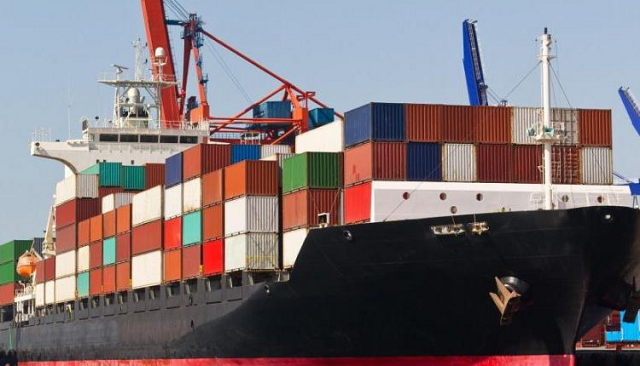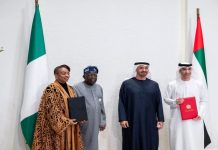The Manufacturers Association of Nigeria Export Promotion Group (MANEG) has called on the Federal Government to pay the outstanding Export Expansion Grant (EEG) debt amounting to ₦150 to ₦200 billion to boost the non-oil export.
They say the country needs non-oil export proceeds to support import-dependent firms, boost foreign exchange availability and shore up foreign reserves.
“The current backlog will be approximately ₦150 to ₦200 billion, which is, again, bad because they are creating a fresh backlog and this would bring another batch of promissory notes to be issued in order for exporters to be paid,” Ede Dafinone, chairman, MANEG, told journalists in Lagos at the weekend.
The EEG was set up in 1986 to help Nigerian exporters become competitive at the global market. It is a practice in many developing and developed countries such as China, India and Australia to provide concessions or cash rebates/grants to companies penetrating new markets or consolidating already established markets to enable them rival competitors.
In Nigeria, companies that exported different kinds of products or commodities between 2006 and 2016 were owed billions of naira in claims as the federal government did not meet the obligation of settling them as promised.
Dafinone explained that apart from ₦197 billion approved by the National Assembly, there was ₦130 billion yet to be approved by the National Assembly. He said outside of that, only 17 percent of the 2017 backlog was paid, while 2018 and 2019 were fully outstanding.
He said the non-payment of EEG was greatly affecting non-oil export as a country.
Exporters have argued that Nigeria’s non-oil export grew from $600 million to $3 billion from 2005 to 2013 due to the grant scheme which encouraged them to expand and discover new markets.
“Oil prices crashed in March this year and it highlighted the need for the government to diversify their revenues away from oil towards non-oil. With the stoppage of EEG from 2014 to 2018, there was a complete drop in the amount of non-oil over that period. It is very clear that with EEG, non-oil export significantly grows when that has been paid.
“What we found is that exporters who are beneficiaries of the grant have priced their products at lower prices to break into new markets. A situation where the EEG has not been paid, the exporters find it unprofitable to break into those markets and retreat back towards our own local market which, clearly, is not good for the Nigerian market,” he further said.
Dafinone further said that exporters using promissory notes were offering a further discount and needed to be paid to support their businesses.
“Effectively by my rough calculation, every ₦100 that is being owed for EEG claims, they are collecting between ₦30 and ₦40 back from the government. I raised the argument lately that the federal government may be cash-strapped, therefore would not be to pay fully. But this is a scheme based on government promising to pay and exporters made a commitment in view of that promise to pay given by the government,” he said.
The African Continental Free Trade Area (AfCFTA) is said to have the capacity to create the largest trade zone in the world and increase intra-African trade by 52 percent by 2022 while removing tariffs on 90 percent of goods. The free trade treaty is expected to start in January, but Dafinone thinks Nigeria needs another year to prepare.
“We are not properly prepared to take advantage of the possible benefits and, in my opinion, as a country, we need additional preparation to take full advantage. My view would be that we should, on the back of COVID-19, call force majeure on this and ask for an additional year in order to put our house in order before we go live on the AfCFTA,” he said.
He said due to border closure, export through land borders had been totally stopped, but the sea route was still available, adding that this option was largely more expensive than the land borders.
Source: Business Day












